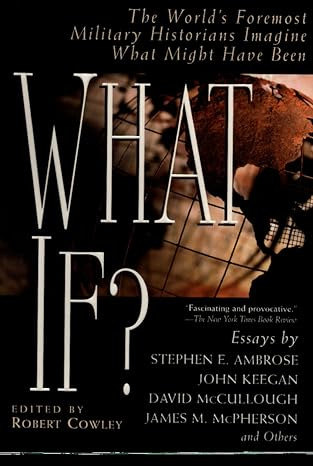About 16 years ago, the genealogical research company Ancestry.com commissioned a genealogist to find out who might be the current king if George Washington accepted the throne as many hoped he would, and the new nation adopted a hereditary monarchy.
Paul Emery Washington, then 82, a retired regional manager of a building supply company in San Antonio, Texas — George Washington’s fourth great-nephew — was selected as the most likely prospect. “He’d make a great king,” one of his sons told reporters.
“Had George Washington ascended to the throne,” Newsweek declared, “Paul Emery Washington ( Joe Six-pack, incarnate) could (in 2008) go by King Paul, the first.” He died in 2014 at age 87. He was survived by his sons Dick, Bill and Jack, as well as a daughter Julianne; five grandchildren, eight great grandchildren and three great-great grandchildren.
George Washington himself did not have biological children. According to a genealogist hired by Ancestry.com, depending on the monarchal rules of succession, Paul Emery Washington’s family, which includes three sons and one daughter, are fifth-generation descendants of George's oldest brother, Samuel Washington (1734-1781). He had five wives, four of whom died before him, and nine children.
Since many Americans seem to have abandoned their birthright — a presidency of limited ambition, power, and authority — maybe there’s hope for Donald Trump Jr. and his brother Eric.
This is one of 67 posts (so far) on Alternative History. See the full list: https://jimbuie.substack.com/t/alternative-history
Offer your observations in the comments below. Subscribe to my Substack for just $5 a month.
'No Kings' Rallies Attract Millions
More than five million Americans have participated in No Kings rallies against the shift to an unconstitutional, absolute monarchy by a U.S. president who is usurping the powers of Congress and defying federal courts. It was the second major demonstration of 2025 in a burgeoning resistance movement. Attendance dwarfed the sparsely attended military para…
What if George Washington Was Shot In The Early Days of the Revolution?
In the fall of 1777, Captain Patrick Ferguson, a Scottish marksman in the British army, had General George Washington in his sights near the Battle of Brandywine. If he had chosen to pull the trigger and kill Washington, he would not only have changed the course of the Revolutionary War, but also of the new nation and the world. But Washington had his back to Ferguson and was not on the battlefield, so Ferguson, in a moment of chivalry, did not shoot him.
The story is recounted on Historynet.com.
It was also recounted in an essay by historian Thomas Fleming, “Unlikely Victory: 13 Ways the Americans Could Have Lost the Revolution” in “What If? — The World’s Foremost Military Historians Imagine What Might Have Been,” edited by Robert Cowley. Excerpt.
Plot to Kill Washington
There was also a secret plot to kill George Washington, as Brad Meltzer and Josh Mensch wrote in their 2019 book, The First Conspiracy. “In 1776, an elite group of soldiers were handpicked to serve as George Washington’s bodyguards. Washington trusted them; he relied on them. But unbeknownst to Washington, some of them were part of a treasonous plan. In the months leading up to the Revolutionary War, these traitorous soldiers, along with the Governor of New York, William Tryon, and Mayor David Mathews, launched a deadly plot against the most important member of the military: George Washington himself,” Meltzer and Mensch wrote.
Their book is “the story of the secret plot and how it was revealed. It is a story of leaders, liars, counterfeiters, and jailhouse confessors. It also shows just how hard the battle was for George Washington and how close America was to losing the Revolutionary War.”
The book is well-reviewed:
Read the first chapter for free, or order it from Amazon.com.
John Jay, best known as the first Chief Justice of the U.S. Supreme Court and as the second governor of New York, during the American Revolution at age 29 ran a secret committee to detect and defeat conspiracies to assassinate Washington, fearing the leader’s death would stop the revolution in its tracks. Jay’s committee is now considered America’s first counter-intelligence agency.
If you go to CIA headquarters in Langley, Virginia, one of the conference rooms is named for John Jay as “the founding father of counter-intelligence.”
Author Meltzer explained on YouTube that “leadership is not about taking charge, it’s about taking care of people who are in your charge.”
More about British Captain Ferguson to lend a fuller context to this story.
American Battlefield Trust: “Major Patrick ‘Bulldog’ Ferguson was one of the fiercest, and fiercely hated, British commanders of the Revolutionary War. But when he tried to subdue Patriot activity in the Appalachian mountains, he took a step too far.” https://www.battlefields.org/untold
This occurred at the Battle of King’s Mountain in South Carolina in 1780 (near the NC border). It turned out to be a major victory for the Patriots against the Loyalists.
The Vengeful Spirit of Patrick Ferguson at King's Mountain Battlefield
Fife Paranormal: The spirit of Major Patrick Ferguson is said to attack people who disturb his grave, and will even challenge them to a duel. Let's explore the story behind the Battle of King's Mountain, and why Ferguson is still fighting the battle. #Paranormal #BattleofKingsMountain
What Made George Washington Great?
Probably what deterred me as a student of history from more curiosity about George Washington was that textbooks and teachers too often portrayed him as a plaster saint rather than a real human being with feet of clay.










counter factual history always founders on assumptions. Who would have taken command had Washington been killed? What then? Who would have become president on Washington’s death? Would he have been able to pull an Augustus and “adopt” a successor as son? If so, would we have had the twelve Caesars? Then what?
True. The counter-factual of GW as king is fanciful and a bit tongue in cheek, a maybe too subtle critique of the present moment. He wouldn't have been who he was if he chose to become king. Americans who favor Trump's absolute presidential powers have abandoned the identity of Americans since the 1780s.
The more breathtaking counter-factual is if GW had been assassinated early in the revolution. Would it still have succeeded? Who would or could have led the young nation? Was our destiny so fragile as to depend on one indispensable individual?